Are you stuck and badly wanted to get rid of Procrastination?
Welcome to Procrastination Masterclass: A complete guide to Learn How to Overcome Procrastination?
Let’s start the Masterclass with one task in hand…
Today you have to complete this Master Procrastination class
The moment I say this …
In the Next minute, your mind will have reasons to give
Today – no no – I will Start from next week as this week
I have lots to catch up,
I am stuck up in the middle of something more important,
I am very busy this week,
Things are Super Crazzy – Bla Bla Blaa
Has procrastination ever stopped you from finishing even the smallest task?
Have you ever had problems motivating yourself?
Wouldn’t it be nice to never hear yourself say,
“I’ll do that tomorrow”? (Or: “I should have done that…”?)
Procrastination isn’t a new word to a LOT of us.
We are all guilty of it but there seems no way to ever quit it.
You might even think you’re lazy or maybe the work isn’t interesting enough to do but it’s not always the case.
You can stare at your laptop screens for hours, drink multiple coffees or watch motivational videos to prep yourself,
and still, end up not doing any work.
From teachers, students to business owners, all have been struggling with procrastination for long period..
You, too, are in the same race.
The idea of delaying important assignments or work never leads to a fruitful result.
There must be a way where we can finally take charge.
How can we quit delaying, perform our task on time and deal with the never-ending responsibilities?
The only way to do so is by getting rid of procrastination.
In this masterclass, we’ll talk about the scientific reasons behind procrastination,
their effects on us and how to overcome them using powerful techniques.
Let’s begin –
What is procrastination?
Table of Contents
Procrastination comes from the Latin pro meaning “forward, forth, or in favour of” and crastinus means “of tomorrow.
What procrastination is and does in real life is far more than its literal meaning.
Procrastination isn’t just delaying work voluntarily
but an irritating delay that makes us guilty and
remorseful for not doing a particular task that’s needful.
Procrastination is also derived from the Greek word akrasia which means doing something against our better judgment.
Thus, when we procrastinate, we know we act against our best interest causing us guilt.
In the modern language, you can call procrastination delaying vital tasks or assignments knowing its importance while feeling regretful.
It’s an absence of physical labour but mental stress and frustration.
The self-awareness of wrongdoing yet continuing to do so causes tension.
Why do we procrastinate?
Now that you know the definition of procrastination, let’s move on to the
“WHY”
After all, why do we procrastinate?
First Point – YOU ARE NOT A PROCRASTINATOR BUT YOU HAVE A HABIT OF PROCRASTINATION
And here is good news…
you can always change your habits by using different methods and techniques and
Procrastination isn’t something we are born with or acquire from someone else, then how do we develop it.
The root cause of procrastination stems from stress or bad mood.
Yes, you heard that right. The Main Trigger is Stress and Anxiety.
We procrastinate to cope with negative moods like boredom, frustration, anxiety, self-doubt, or other from a specific task.
“Procrastination is an emotion regulation problem, not a time management issue,” says Dr. Tom Pychyl, the professor of psychology and a member of the procrastination Research Group at Carleton University at Ottawa.
Let’s go deep into it
First, understand – How our Mind Operates
We can divide our mind into two dimensions …
Lower Mind and Higher Mind (or Intuitive or Soul Mind)
About Lower Mind – Think only of the present moment – does not bother about past and future and
It likes fun and easy task,
It does not like the complexity and always look for more leisure and funny time
This mind is very active in running from one point to another
and also very Bully in its approach
About Higher Mind – This part of the mind is very balanced and consider everything in life –
Be it Past or Future,
This mind keeps reminding us what is best for us in the future, see the big picture, it keeps on planning and pushing towards our destiny.
It pushes us to do more work and less fun so that we achieve the big picture
but occupies little space and easily get carried away
Most of the Procrastinators life is Lead by Lower Mind and hence most of the time in a day goes in Easy or Fun and Leisure related task.
For example – If you want to lose weight
Your Lower mind knows, Things that you are procrastinating on like exercise or work don’t result in instant rewards.
You get the results/rewards from exercise or work after months.
Which makes it difficult for the Lower mind to work without getting instant gratification.
Thus, the lower mind doesn’t allow you to carry task the task for a long time.
like Your Lower mind loves eating pizza rather than doing
exercise even though your higher mind knows that it will
make you fit and healthy in future.
So to satisfy the immediate mood of your lower mind because of its bully nature, we tend to procrastinate.
We procrastinate by doing things that are simple like watching a Youtube video or scroll through social media to take off our minds from the stress of work.
To conclude, procrastination doesn’t occur because you are lazy or not productive enough, it’s mostly about emotions.
If you aren’t motivated to do a specific task, you look for a distraction that acts as an escape.
Our brains look for immediate rewards, which aren’t available in the form of long-term goals and work.
It’s difficult to break free from procrastination because delaying work is easy, and addictive.
There’s an infinite number of actions/activities you can do to procrastinate.
So to prevent procrastination, we must learn to give more power to Our Higher Mind rather than getting carried away with our lower mind.
How much Procrastination cost you?
Procrastination is capable of causing complete havoc in our lives.
It can loot you of your potential and capabilities, much like the poet Samuel Taylor Coleridge. One of the greatest nineteenth-century poets who lost his fame to William Wordsworth, all due to his addiction to procrastination.
Here are some ways procrastination can affect you:
Financial Distress –
While examining the rate of success among procrastinators and non-procrastinators, the latter tends to perform worse.
Whether you look at education, career or income, people who procrastinate tend to often move from schools to jobs so the overall wealth measure tends to be quite less.
About 40% of procrastinators have above-average grades in high school and college, while 60% lie below.
Your performance in school, or at work is always evaluated, and submission in work is a major count.
Bad Health –
It might not be a surprise anymore but when it comes to healthcare, procrastinators fall way behind.
People who procrastinate are most likely to delay their treatments, and most likely to indulge in unhealthy eating habits that’ll require treatments quite often.
Procrastination causes people to put their health at risk due to its impulsive nature, and addiction to short-term pleasures despite long term complications.
Smoking and drinking is something most procrastinators are quite familiar with.
Less likely to be happy –
Procrastination isn’t just responsible for making you less wealthy and healthy, but also less happy.
The stress that comes from procrastination intensifies into extreme guilt.
Most people who procrastinate are Fimiliar to anxiety, regret and stress that comes from putting off work.
When people finally complete the task, they feel much better and joyful. Most of the work and willpower gets consumed into starting the work than doing the task itself.
Since procrastination takes up more time than actual work hours, you are most likely to feel sad and concerned frequently.
Time Loss –
Procrastination out of everything costs you more time. Whether you are a student, manager or CEO, you are bound to lose hours while just staring at a blank sheet.
Now that you know the detrimental impact of procrastination, do you think it’s affecting you?
How to identify whether you procrastinate or not?
We’ve learned about what procrastination is and how it affects a person, do you practice it?
People rank differently when it comes to procrastination and the higher the rank, the more it’ll affect you. Are you a “so-so or a hardcore “last-minute” procrastinator?
If you don’t know how well you rank as a procrastinator, there are a lot of fun methods to help you find out.
In the book “The Procrastination Equation” How to Stop Putting Things Off and Start Getting Stuff Done”,
Dr Piers Steel – a professor of motivational psychology at the University of Calgary shares an interesting test to compare the level of procrastination you possess.
Test Your Procrastination Level
Instructions – In the given below “procrastination level test”, circle your response to the following 9 questions and then proceed to evaluate your total score.
Note: In questions 2, 5 an 8, the questions are scored in the opposite direction.
The numbers in the question below denote the following:
1: Very rare or False
2: Very rare of me
3: Sometimes True
4: Frequently True
5: More Often or True of Me
Circle your response to the questions below –
Q1. Do you delay tasks beyond what is reasonable?
1 2 3 4 5
Q2. Do you do everything when you believe it needs to be done?
5 4 3 2 1
Q3. Do you regret not doing tasks sooner?
1 2 3 4 5
Q4. Do you put off work even though you shouldn’t?
1 2 3 4 5
Q5. If there’s something you should do, do you get to it before attending to lesser tasks?
5 4 3 2 1
Q6. Do you put things off so long that your well-being or efficiency suffers?
1 2 3 4 5
Q7. At the end of the day, do you realise you could have spent the time better?
1 2 3 4 5
Q8. You spend your time wisely?
5 4 3 2 1
Q9. When you are supposed to do one thing, you do another?
1 2 3 4 5
Total Score: Add the numbers and that’s your score.
Here are what your scores conveys about your procrastination –
Procrastinator Score 19 or less – You are in the bottom 10%.
You aren’t the biggest procrastination on the earth. Whew! You get things done immediately and you have a long way to go.
Procrastinator Score 20 to 23 – You are in the bottom 10-25%
You are also not the biggest procrastination but there’s so much delay in you.
Procrastinator Score 24 to 31 – You are in the middle Average
You get the work done even after a wee bit of procrastination. As long as the work’s getting done, we don’t mind your delays.
Score 32 to 36 – You are in the top 10-25%
Yes, the procrastination fire has got a little in you. Start working on bringing your level down before you get a call from your boss tonight.
Score 37 or More – You are in the TOP 10%
The Master of Procrastination itself. It’s your middle name.
What was your score? Be honest! Are you one of the last minutes or you just skip your gym classes like most of us?
You may also Like this …
This Time Wasters Tracker Will Help You Save More Of Your Time
Proven Techniques To Overcome Procrastination
There are various ways to overcome procrastination that prove to be easy and impactful solutions.
Here are some of the powerful tactics used by psychologists to help you get rid of procrastination one way or another.
-
Take Small Steps
It’s dreadful to even think about the work that’s piled up for you, isn’t it?
You don’t do things perfectly, take smaller steps and gradually speed them up.
For instance, if you’ve planned on doing mediation, start doing it for even 20 minutes every morning.
Setting high goals creates a multitude of problems for people who procrastinate.
Small steps motivate you to start with any work.
If you force yourself with a high amount of work, it will create more resistance and you are more likely to drop and procrastinate.
Don’t make things difficult for you when it’s supposed to be effortless. Make winning easy. Aim lower, set goals by minutes not hours.
This will help you to set in motion and help you retain the motion and eventually accelerate.
The first step towards overcoming procrastination is getting started then you’ll notice great changes.
-
Do the Tasks that takes 2 Minutes
The popular “2-minutes rule” penned by productivity expert David Allen states the benefit of doing tasks that take only 2 minutes.
When you are cluttered with multiple works and don’t know which work to prioritise, nitmpick the work that’ll take less than two minutes, do them immediately.
Piling work just so you can do them when you have enough time will only increase more work for you, giving you more reasons to procrastinate.
So wrap up all the tasks that can be finished immediately, like replying to an email, cleaning, or paying bills.
Don’t add any more work to your to-do list anymore.
It not only helps to complete the task but also frees up a lot of your mental sense, giving you a feeling of accomplishment and creating a productive habit.
Before you know it, you maintain this mentality with other tasks as well, you won’t be overwhelmed with work anymore but would be in a hurry to finish them as fast as possible.
-
Reward Yourself
As mentioned before, our Present self works values rewards.
So whenever you are done with targeted work, give yourself a small reward.
If you’ve been exercising for the past hour, gift yourself a delicious smoothie.
Or take yourself shopping after finishing a project work.
Since our mind benefits from long-term goals but wants immediate gratification, a small reward helps you to prevent procrastination.
Trap your mind with rewards after every level of work completion, and you’ll be able to complete multiple projects.
Aversive tasks require a positive emotion that’ll make the work motivating enough to complete.
It will allow for less resistance, and more work is done.
-
Fine Yourself
If you can reward yourself for working, then you can also punish yourself when the work isn’t getting done.
Loses work more powerful so if you don’t tend to keep your promise, you’ll have to lose some money.
You can start this experiment with your buddy and ask them to demand money if you fail to do assigned work.
If you manage to do the work, then you get to keep your $100. If you don’t, then the money goes to your friend’s account.
The penalty can be anything, it can be money or an embarrassing dare.
In a fun way, you’ll be less likely to procrastinate either due to losing money or not wanting to be embarrassed in the public.
And you have to give the money beforehand so that the game remains fair.
-
Get Rid Of Distraction
The addictive designs of social media apps like Facebook, Instagram or other entertainment platforms like Netflix, Hulu or video games can soar your distraction level.
Modern technologies are designed to be downright addictive and soak up all your hours and attention.
So to get rid of these modern distractions, make them difficult to access.
Delete the apps from your phone, uninstall them from your computer, or sell your gaming consoles to your friend to make them difficult to find.
You can also alter the environment where you live.
If you work in your bedroom, it’s most likely to trigger you to procrastinate while a nice office type of room will motivate you to work.
So change the environment and design it with things that’ll improve productivity.
How to ALWAYS reach the finish line?
We’ve finally found the cure to procrastination. Now let’s move on to making you productive and help you reach the finish line always.
Here are the best techniques for utmost productivity and consistency –
-
Schedule Your Work/ Organise
When we talk about being productive, we want to manage time perfectly. Time management is only possible when you know how to control it.
You might have work assigned to you for today, tomorrow or after a month.
The best way to manage to do all the work on your list is by allocating them to a specific time in the day.
When the work is just in your mind, it’s all cluttered and everywhere.
Once you schedule the work, it becomes a responsibility and you take the work seriously.
Planning is great but it’s not as effective as scheduling.
When your work is scheduled, you learn about how much energy you have for other tasks and also there’s no room for excuses.
It’s simple advice that’s quite powerful and life-changing. What you don’t schedule, you never get it done.
-
Plan your Tomorrow’s Tonight
Yes, plan your day the night before so that you make the right decision at the right time and get the anticipated result.
It helps you from preventing feeling lost or off-track. When you plan, you just have to do the action.
It allows you to make progress, give a good feeling about yourself, and create good momentum.
Planning is equally necessary as taking an action because it allows you to create a map that you can follow to get what you desire.
If you are unprepared then you have a high vulnerability to procrastination.
Planning your priorities beforehand just makes the next day quite convenient and productive.
With that being said, let’s discuss how to plan your day.
Create a list of all the important tasks you must do in perfect order.
Arrange them from high-value tasks to low-value and drag them with their fixed timings.
That’s it. Your entire day just got planned, you just have to follow what you’ve written.
-
Build a Sense of Momentum
Develop a sense of urgency when it comes to your task, don’t enjoy working slowly rather aim to finish instantly.
By doing so, you activate the Momentum Principle of success that takes high energy to overcome inertia and
gets started with work that takes less energy to continue.
“The faster you move, the more energy you have.”
Fast way of working gets more things done, and it also improves your self-esteem, personal pride and self-respect.
To start anything in your life, just say “Do it now! Do it now! Do it now!” over and over to yourself.
With an ample amount of work, you might slow down or get distracted by social media,
the conversation then repeat back the words “Back to work! Back to work! Back to work!” over and over again.
Best Books to read on Procrastination
Here are 3 Best Books on Procrastination & Overcoming Laziness
- Solving The Procrastination Puzzle :This book offers numerous practical tips for change, Solving the Procrastination Puzzle brings clarity and scientific studies with a feel of humor.
Great book to go deep inside of the cause and solution of overcoming Procrastination form your life.
2) The Now Habit :
This book will help you to understand yourself, to take care of yourself, and to help yourself develop simple habits that can change your life.
3) Eat that Frog :
For Tracy, eating a frog is a metaphor for tackling your most challenging task—but also the one that can have the greatest positive impact on your life.
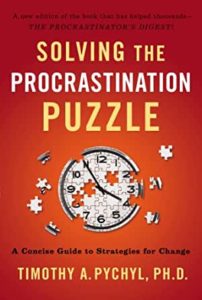
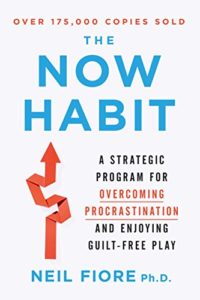
Nothing helps you improve your career and reputation other than being known as the person who gets things done quickly and well. It’s one of the most valuable and respected appreciation to ever get in any field of career.
Last I am sharing with you
Top Apps that will Help You to Stop Procrastinating and Multiply your Productivity.
- Zero willpower. To Get Antisocial.
- Focus@will. To Get Your Head In The Game.
- 1-3-5 list. If You Can’t Prioritize.
- EverNote. If You’re In A Group.
- Simple habit. To Conquer Procrastination Anxiety.
- Mindy. To Master Your Mental Mess.
- Momentum.
- FREEDOM.
Summary :
The goal of the masterclass was to get rid of procrastination and the guilt that comes attached to it. Our role in life is to persevere. Forgive yourself and get back to getting things done.
“Persevere in your quest and you will find what you seek. Pursue your aim unswervingly and you will gain victory. Struggle earnestly and you will triumph.”
In the final words, we are looking for success but it looks for a great tone of discipline. Self-discipline, self-mastery and self-control is the building block of high performance. It’s not something you are born with, you develop them with your habits. Start the high-priority tasks and persist with them until it’s 100 percent done.
Persistence is self-discipline in action.
You’ll experience various defeats, don’t surrender.
Just focus on the priority task and concentrate single-mindedly until it’s 100 percent complete. It will not only improve your work, career but also your character.
You will become like one of those successful people who look up to.

SCHEDULE YOUR INTRODUCTORY COACHING SESSION AT NO COST !
– Know-How you can Make an Impact on your Life & Branding and Get Successful.
Check here – https://www.bhuwanpant.com/power-talk/


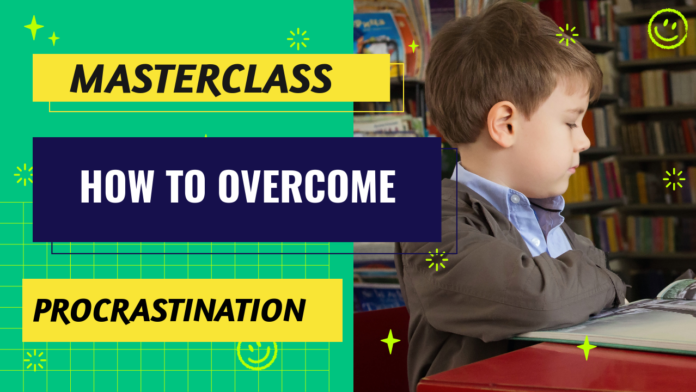
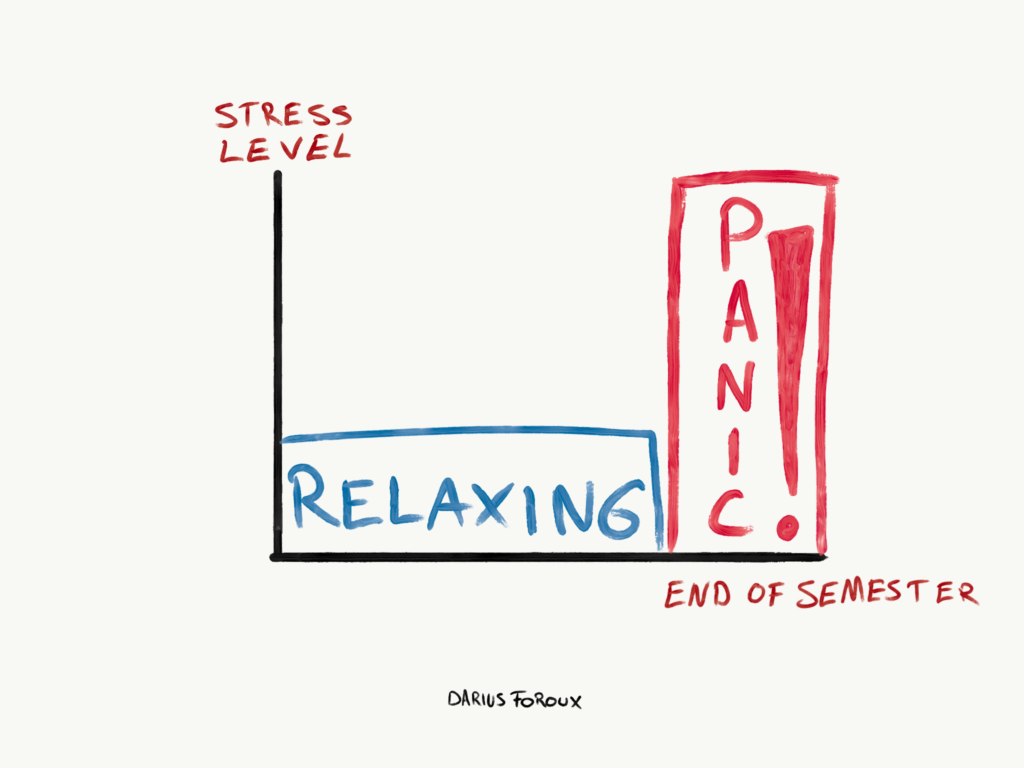
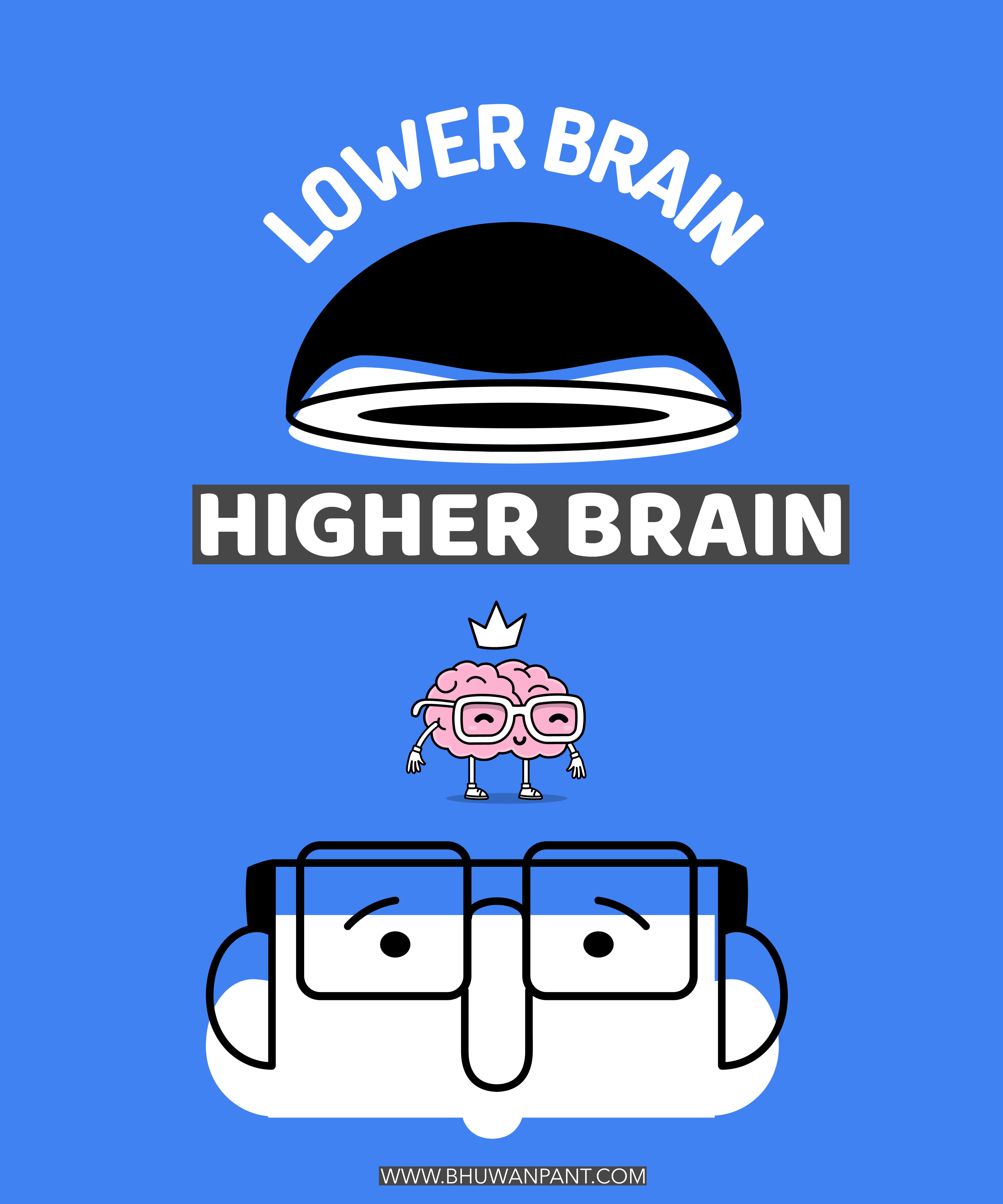
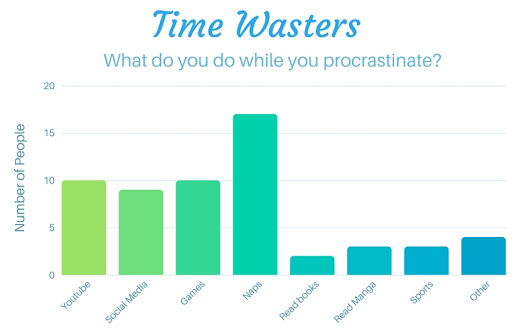


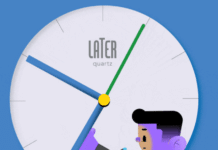








Good day very nice site!! Man .. Beautiful .. Amazing ..
I’ll bookmark your blog and take the feeds also?
I am satisfied to find a lot of useful information right here in the publish, we
want develop extra strategies in this regard, thanks for sharing.
. . . . .